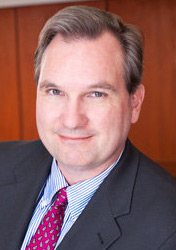Details:
Please join us for our Winter Quarter installment of our Brown Bag Speaker Series, featuring a presentation by Professor Thomas Lyon titled “Improving children’s testimony: Turning difficulties into strengths”
This event is free and open to the public. Light refreshments will be served.
Date:
Thursday, February 9th, 2017
Time:
4-:00 – 5:00pm
Location:
University of California, Irvine campus
EDU1111
Abstract:
Questions about children’s accuracy have long focused on the dangers of eliciting false allegations and creating false memories through suggestive questioning. However, poor questioning can lead to other sorts of errors. Children often misinterpret questions, and their answers in turn are misinterpreted by interviewers and others who assess their reports. Children are reluctant to disclose wrongdoing, particularly when it is perpetrated by adults close to them. I’ll describe research that attempts to turn children’s difficulties into strengths. Misinterpretation is often due to failed inferences—that is, implications of questions that go beyond the literal language. We have shown that misinterpretation can be minimized if children are asked open-ended questions and encouraged to provide elaborated responses. Ironically, reluctance can be overcome by taking advantage of children’s limited inferential abilities. We have found that instructions and questions that suggest abuse to abused children but do not suggest abuse to non-abused children are an effective means of eliciting abuse reports. Effective combinations of encouragement and open-ended questions can increase children’s productivity, honesty, and minimize suggestion.
Speaker Biography:
Thomas D. Lyon, J.D., Ph.D., is the Judge Edward J. and Ruey L. Guirado Chair in Law and Psychology at the University of Southern California. He is the Past-President of the American Psychological Association’s Section on Child Maltreatment (Division 37) and a former member of the Board of Directors of the American Professional Society on the Abuse of Children. His research has been supported by the National Institutes of Health and the National Science Foundation.


Connect with us